In order to support and offer consultancies to the Italian Councils, Ecopneus has launched a dedicated web page and email address on occasion of this event
Ecopneus is a Main Sponsor of the XXXIX Meeting of ANCI. It is a unique annual occasion, when the world of business meets the Public Administration. This year will be held in Bergamo from 22nd to 24th November. It is a place where ambitious projects and solutions are conceived and developed to increase citizens’ wellbeing and councils’ efficiency. The main topics of interest for councils will be dealt with during this meeting.
On the occasion of this event, Ecopneus has launched a communication channel wholly dedicated to the Public Administration. The aim is to offer support and consultancies to the local Public Administration on the innovative and sustainable solutions offered by rubber recycled from End-of-Life Tyres. A reserved email address and a web page (https://www.ecopneus.it/comuni-circolari/ ) act both as a guide on the many applications of recycled rubber and as a description of the know-how the consortium has used to transform waste into precious resources for our cities over the past twelve years.
During the ANCI meeting, on Thursday 24th November, the Workshop “Ecopneus with sustainable councils” will be held from 10:00 to 12:00 to discuss these topics in detail. It is an important occasion of talking about the applications of recycler rubber applied to the urban sector with mayors, administrators and the representatives of the world of the Public Administration. Moreover, the concrete contribution recycled rubber makes to Italy’s circular economy will also be subject of this workshop.
Federico Dossena, General Manager of Ecopneus, stated: “In this crucial moment for the Italian economy and for a sustainable development of our cities, it is important to address our choices towards solutions that can positively impact on the territory, our communities, and the environment. Fully complying with the principles of the circular economy, the materials obtained from the recycling of End-of-Life Tyres are an advantageous resource for those Councils and Public Administration that intend implementing a sustainable and virtuous strategy. With this initiative, Ecopneus repeats its own commitment towards the local administration it has collaborated with for years with hundreds of projects, interventions and collaborations. Ecopneus intends stimulating the adoption of these applications and the exploitation of a precious and cheap resource that we would, otherwise, be forced to export. We hope that also the Government will contribute to this effort with fiscal incentives for recycled materials and imposing binding targets for the adoption of sustainable solutions from the part of the Public Administration. All this in order to make sure that the circular economy really happens and to contribute to the global sustainability objectives and against climate change.”
From silent, resistant road surfaces to interventions of urban regeneration. From sustainable sports installations to quality public buildings, recycled rubber represents a true strategic resource for Councils and Local Administration. It can positively impact on the opportunities of local development, on the lives of current and future generations and on the institutional and financial system and, last but not least, on the environment.
The application of recycled rubber to the urban environment has many qualities. On top of this, the activities of Ecopneus generate important environmental and financial benefits. In 2021 alone, 310 thousand tonnes of CO2 equivalent were not released into the environment. This amount is equivalent to the emissions of 185 thousand automobiles that drive 10,000 km in a year. Moreover, there was a saving of 1.23 million m3 of water (this is the amount of water needed to fill 495 Olympic-sized swimming pools) and over 282 thousand tonnes of virgin raw materials (this compares to the weight of 575 High speed “Frecciarossa 1000” trains. These benefits are to be added to the savings linked to the reduction of imports of virgin raw materials amounting to about 79 million euros.

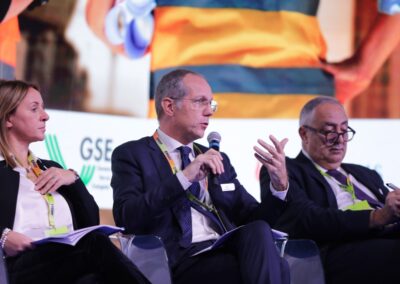
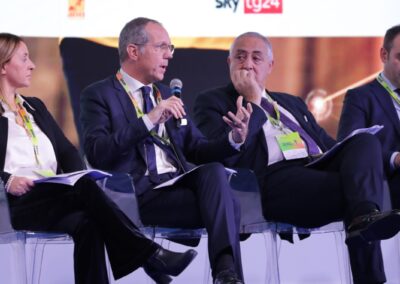
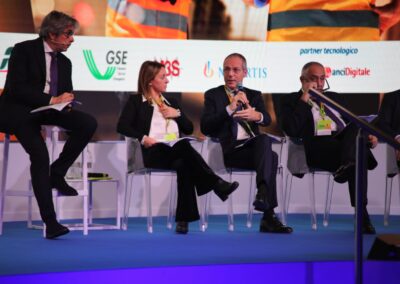

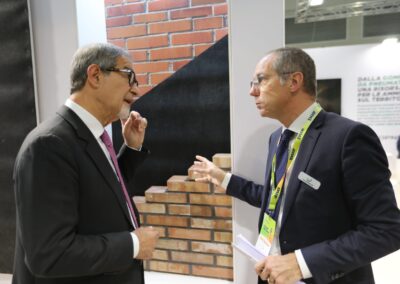
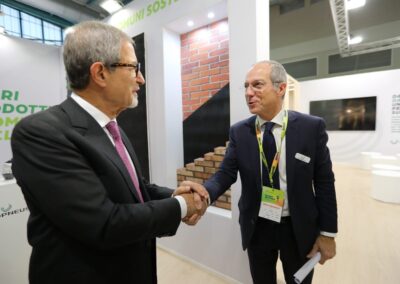
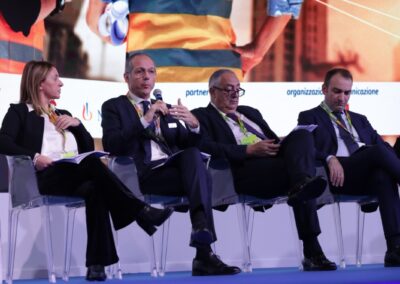

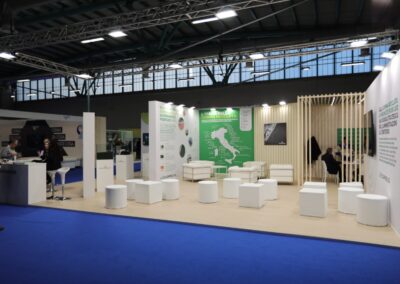
 Collect ELT
Collect ELT